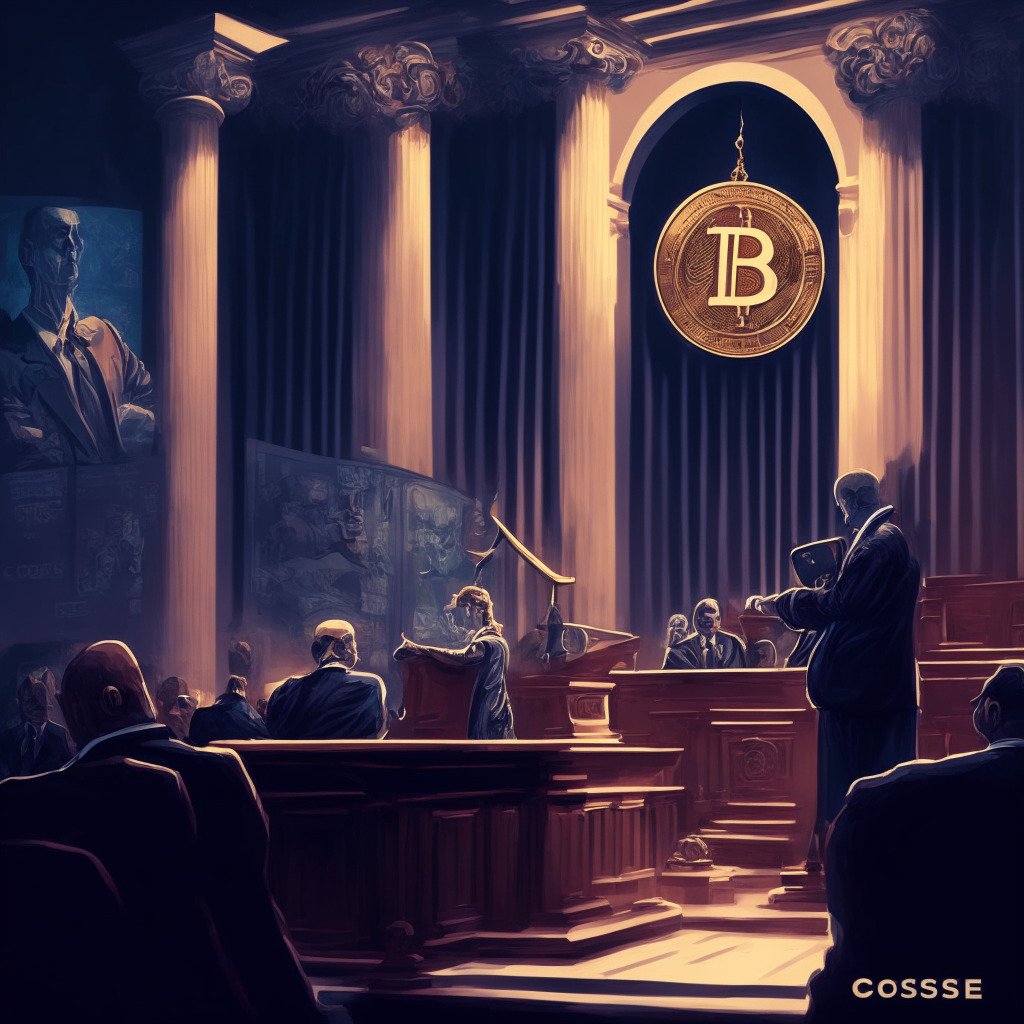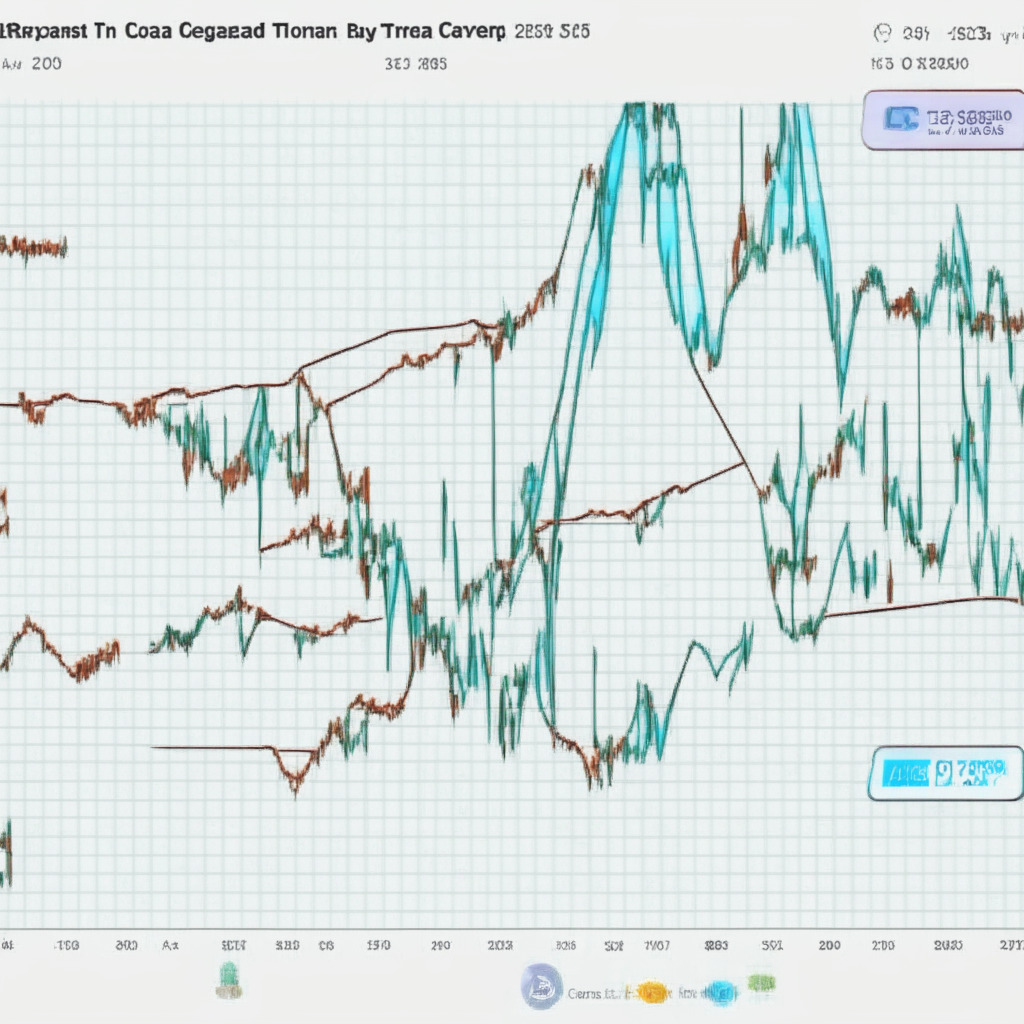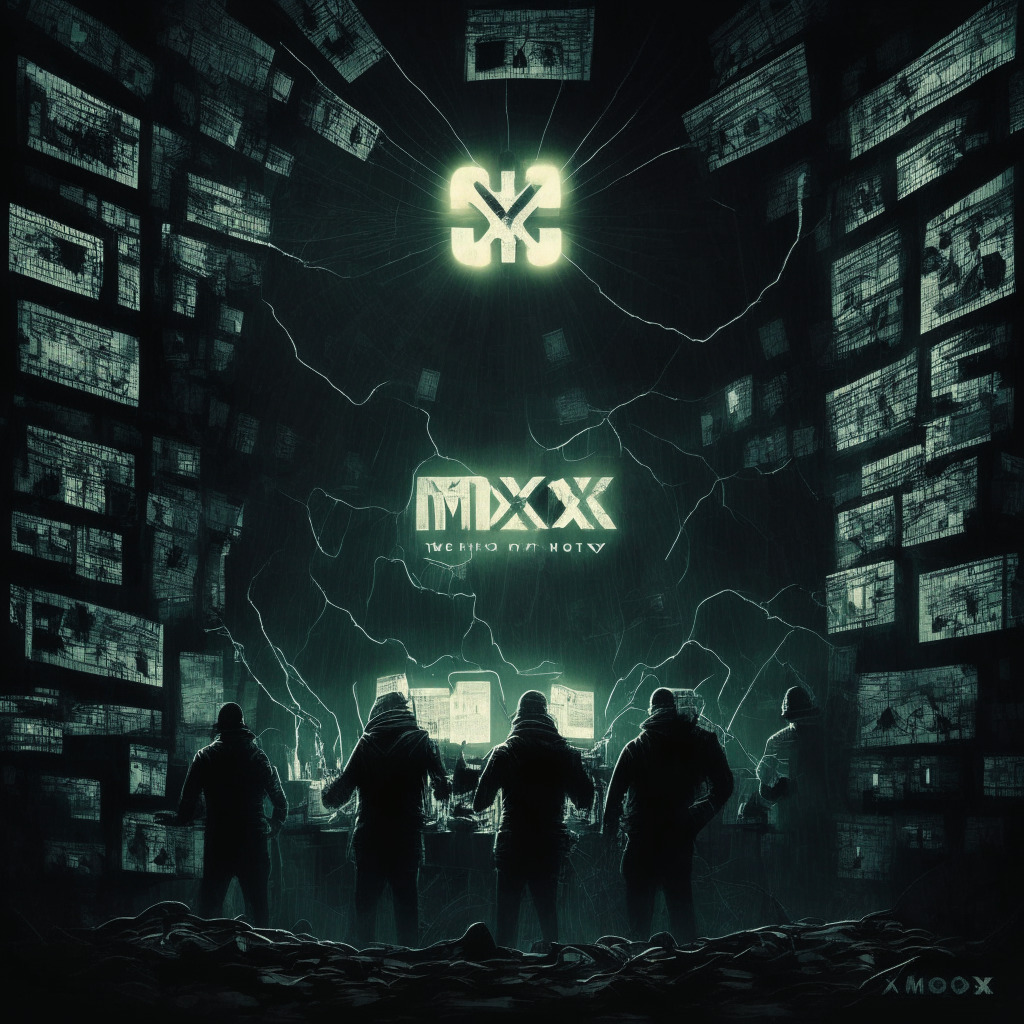The SEC’s allegations against Binance and Coinbase challenge the future of DeFi, potentially hindering innovation and disrupting the ecosystem. By targeting these exchanges for suspected securities law violations, regulators threaten DeFi’s decentralized nature and may dampen investor confidence, limiting market growth and long-term potential.
Day: June 9, 2023
SEC Lawsuits Trigger $4 Billion Exodus from Binance and Coinbase: Analyzing Impacts and Responses
The SEC has filed lawsuits against Binance, Binance.US, and Coinbase, triggering an exodus of around $4 billion in deposits. Blockchain analytics firms Nansen and Glassnode recorded combined net outflows of $3.1 billion via Ethereum and $864 million in bitcoin. The regulatory clampdown led to mass withdrawals from the exchanges, unsettling the cryptocurrency market and causing substantial declines in tokens categorized as securities within the lawsuits.
Ooki DAO Ruling: Balancing Innovation and Regulation in Decentralized Systems
A US district judge ordered Ooki DAO to pay a civil penalty and cease operations, setting a precedent as the court considered the DAO a “person” liable for legal violations. The case raises essential questions about balancing regulation and innovation in the blockchain world, while other DAOs face increased scrutiny from regulatory bodies.
Groundbreaking Ruling on DeFi Regulation: A New Era of Compliance or Stifled Innovation?
A federal judge ruled in favor of the U.S. Commodity Futures Trading Commission against Ooki DAO for offering unregistered commodities, breaking the notion that DeFi entities are beyond regulatory scope. This highlights growing regulatory encroachment and questions how future regulations will adapt to decentralized platforms.
Robinhood Ends Support for Cardano, Polygon, and Solana Amid SEC Lawsuits: Impact on Crypto
Robinhood announced the end of support for Cardano, Polygon, and Solana due to their identification as unregistered securities in SEC lawsuits against Binance and Coinbase. The decision aims to advocate for regulatory clarity and protect customers amidst the ongoing legal uncertainties.
Generative AI Adoption: Excitement, Concerns, and the Struggle to Keep Up
A recent KPMG U.S. survey shows that while 65% of executives predict significant generational AI impact on their organizations, challenges, including costs, business case clarity, and concerns about cybersecurity and data privacy, hinder immediate adoption, talent acquisition, and effective governance.
SEC Summer Crackdown on Binance & Coinbase: Legal Clarity or Market Fiasco?
The SEC has targeted Binance and Coinbase in its recent crypto crackdown, resulting in 13 charges against Binance and accusations of unregistered securities offerings against Coinbase. Despite ongoing uncertainty, these events may bring desired legal clarity to the industry.
FTX Bankruptcy and Customer Privacy: Protecting Assets or Hindering Trust in Crypto Markets?
The ongoing disagreement surrounding the collapsed crypto exchange FTX and the disclosure of customer names persists, with concerns that revealing names could “degrade value” and impair the sales process, affecting repayment to creditors. Highlighting the delicate balance between privacy and public transparency, this case could have ramifications on cryptocurrency regulations and future exchange operations.
Mt. Gox Hack: Unraveling the $400M Cyber Heist and the Future of Blockchain Security
The US Justice Department unsealed charges against Alexey Bilyuchenko and Aleksandr Verner for the $400 million hack of Bitcoin exchange Mt. Gox, alleging they laundered 647,000 BTC. The hack highlights the need for robust security measures in the evolving crypto space while authorities work to enhance security and hold cybercriminals accountable.
Nostr and Zebedee: Revolutionizing Social Media with Bitcoin Integration and Decentralization
Nostr and Zebedee collaborate in a groundbreaking partnership to create a new type of decentralized social media. Users can send zaps (tiny bitcoin fragments) instead of traditional “likes,” with a focus on decentralization and user control over identities and followers, potentially revolutionizing social media platforms.
Decentralized Social Media Revolution: Lens Protocol Raises $15M and Empowers Users
Aave’s Lens Protocol, a decentralized social media solution, has raised $15 million to develop a blockchain-backed platform that gives users control over their profiles, connections, posts, and data. Promising innovative monetization models and profitable businesses sharing revenue equitably, Lens aims to create an interconnected web of decentralized apps accessible through a universal profile.
Polygon’s SEC Troubles vs Ecoterra’s Green Evolution: A Tale of Two Crypto Projects
Polygon’s native MATIC token experienced a nearly 20% dip following the SEC’s scrutiny. In contrast, eco-friendly project Ecoterra’s presale is approaching the $5 million milestone. Leveraging blockchain technology, Ecoterra aims to promote responsible recycling, carbon offset, and environmental impact transparency through its native $ECOTERRA token.
SEC’s Aggressive Actions on Crypto Exchanges: Impact on Regulatory Landscape and Future Prospects
SEC Chair Gary Gensler’s aggressive actions against crypto exchanges like Binance and Coinbase could have far-reaching consequences, such as prompting congressional action on crypto regulation and leading to clearer guidelines for crypto businesses. However, uncertainty remains over whether tighter or more relaxed regulation will emerge.
Minecraft’s NFT Ban: A Battle Between Blockchain Exclusivity and Gaming Inclusion
Minecraft plans to ban NFTs on player-operated servers, as Mojang believes integrating NFTs contradicts the game’s core values of creative inclusion and shared play. The ban impacts existing Web3 projects, sparking a complex debate on blockchain technology and gaming values.
Ethereum’s Future: Scalability, Security, and Privacy – Crucial Transitions and Challenges Ahead
Ethereum co-founder Vitalik Buterin emphasizes three critical transitions poised to reshape Ethereum’s future, focusing on enhancing scalability, security, and privacy. Key changes include Layer 2 scaling solutions like rollups, wallet security through smart contract wallets, and increased privacy with features like stealth address methods. Coordination among stakeholders is essential for the platform’s success.
Solana Foundation vs SEC: Security Debate and Its Impact on Blockchain Evolution
The Solana Foundation opposes the SEC’s view, stating SOL should not be considered a security due to Solana’s adequate decentralization. Despite the ongoing debate regarding token classifications, some developers appear unconcerned about the potential regulatory implications on blockchain projects.
The Mixed Crypto Market: DeFi Surge, XRP Gains, and Concerns in the Evolving Landscape
The crypto market shows mixed outcomes, with Decentralized Finance (DeFi) tokens shifting the traditional finance industry’s balance. BTC and ETH see small losses, while XRP gains 2.01%. Investors should research and understand market trends, considering the volatility of digital assets.
Strike Shifts to In-House Custody: Reducing Risks and Enhancing User Experience
Strike has moved all customers’ bitcoin and US dollar assets to its in-house infrastructure, reducing counterparty risk and improving performance. The change allows Strike users to send bitcoin P2P and choose to receive funds as cash or bitcoin, while enabling direct on-chain payments and increased deposit limits.
Crypto.com Ends US Institutional Services: Impact and Future of Crypto Amid Regulations
Crypto.com is winding down its institutional service for American clients due to limited demand, impacting large, accredited customers but not affecting its retail app. This decision highlights the complex relationship between cryptocurrency markets, companies, and regulatory challenges in the U.S.
Ethereum’s Three Transitions: Tackling the Blockchain Trilemma for a Brighter Future
Ethereum’s co-founder, Vitalik Buterin, emphasizes the need for addressing “The Three Transitions” – L2 scaling solutions, smart contract wallets, and enhanced privacy, to ensure Ethereum’s growth and future success. Overcoming the “blockchain trilemma” is crucial in maintaining user confidence, trust, and fostering mass adoption.
SEC vs Coinbase and the Battle for Crypto Regulation in the US: Moral Authority Overreach?
The SEC, led by Gary Gensler, recently filed charges against Coinbase, citing existing U.S. laws to regulate cryptocurrencies. However, ongoing bills in Congress, such as the Digital Asset Market Structure and Investor Protection Act, could undermine these actions and demonstrate Gensler’s potential overreach.
LUNC Price Uncertainty Amid Legal Actions: Terra Classic’s Bearish Trend & Potential Recovery
Terra Classic’s LUNC coin faces an extended consolidation period with ongoing uncertainty due to legal actions against major crypto exchanges. As the LUNC price interacts with the wedge pattern, investors should watch for potential drops or recovery rallies and conduct thorough market research before investing.
Apple VisionPro: Crypto Enthusiasts Debate Impact on Metaverse and Adoption Prospects
The Apple VisionPro, a mixed reality headset, has garnered attention from the crypto community for its potential impact on the metaverse. Though it doesn’t compete directly with Meta’s QuestPro, the device facilitates broader discovery and pushes metaverse boundaries, driving immersion and technological innovation.
Crypto.com Exits US Institutional Market: Focus on Retail or Lost Opportunity?
Crypto.com is discontinuing its services for institutional clients in the U.S. due to limited demand, while retail investors remain unaffected. This move highlights the challenges crypto exchanges face in navigating evolving market dynamics and complex regulatory frameworks surrounding the industry.
De-Dollarization: Implications for Crypto, Gold and the Global Financial System
De-dollarization is gaining momentum, with countries seeking alternatives to the U.S. dollar for international transactions and debt settlements. This shift could create opportunities for assets like gold and cryptocurrencies, but also carries risks, such as market instability and challenges in adopting disruptive forms of money.
Ethereum and Polygon Co-founders Unite for Covid Research: Exploring Blockchain’s Humanitarian Potential
Ethereum co-founder Vitalik Buterin and Polygon co-founder Sandeep Nailwal collaborate to support additional Covid-19 research projects through Nailwal’s Crypto Relief fund. The focus includes understanding long Covid and improving air filtration and ventilation in buildings, recognizing the potential of cryptographic methods and funds for global well-being.
Mt. Gox Case: Lessons in Crypto Security and Dangers of Anonymous Trading Platforms
The recent charges against Alexey Bilyuchenko and Aleksandr Verner for laundering stolen bitcoins highlight the importance of security in the blockchain and cryptocurrency space. The case reveals dangers of unauthorized access to exchanges and concerns surrounding anonymous crypto trading platforms, emphasizing the need for vigilance and stronger security measures.
DOJ Charges Two Russians in Mt. Gox Hack: Impact on Crypto Security and Investor Trust
The US DOJ charged two Russian men, Alexey Bilyuchenko and Aleksandr Verner, in connection with the Mt. Gox hack, alleging they conspired to steal 647,000 Bitcoins between 2011 and 2014. This case highlights the importance of securing digital assets and the potential risks faced by cryptocurrency users.
SEC’s Pursuit of Binance & CZ: Impact on Crypto Exchange Transparency and Regulation Battle
The SEC seeks alternative means to serve legal papers to Binance and CEO Changpeng Zhao due to their elusive locations. Amid a 136-page lawsuit containing accusations of securities violations and market manipulation, the situation raises concerns about large cryptocurrency exchanges’ transparency and highlights the need for a regulatory framework.
IEOs vs ICOs: Navigating the Future of Crypto Fundraising and Investor Security
IEOs (Initial Exchange Offerings) are gaining momentum over traditional ICOs, offering benefits like association with trusted platforms, user-friendliness, and exposure to large user bases. However, they also present drawbacks, such as listing costs and potential risks from exchanges lacking due diligence.
Wyoming Judge Denies Fed Dismissal in Custodia Bank Case: Implications for Blockchain Banks
A Wyoming federal judge denied dismissal motions in Custodia Bank’s legal battle with the Fed, raising questions about the Fed’s role in overseeing digital asset banks. The outcome could impact future adoption and growth of blockchain banks and the Federal Reserve’s vetting role regarding these institutions.
Luxury NFTs, Apple’s Vision Pro, and the Growing NFT Lending Market: Risks and Rewards
This week in technology, Louis Vuitton enters the NFT market with Via Treasure Trunks, Apple announces Vision Pro mixed reality headset, and NFT lending market sees growth with Binance NFT Loan. However, critics caution against potential pitfalls surrounding NFT lending platforms.































